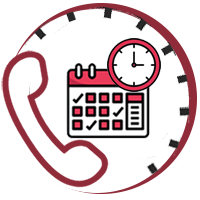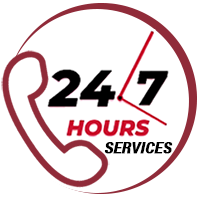
- admin_kataria
- August 30, 2024
- 12:25 pm
Quality sleep is essential for our well-being, but countless individuals globally face sleep issues that impact their everyday routines. Insomnia and sleep apnea emerge as the top ailments disturbing lives. Knowing how these problems affect your daily routine and getting the right help and enhancing overall health.
Table of Contents
ToggleKey Facts
- As per the research, 60% of people in Delhi feel sleepy during working hours.
- 43% of people in Hyderabad, Chennai, and Bengaluru stay up late because of social media.
- 33% of people in Chennai, Gurugram, and Hyderabad stay up late due to work pressures.
- 36% of people in Bengaluru and Mumbai believe that a consistent sleep routine can improve sleep quality.
- 72% of people in Chennai sleep outside of conventional beds.
6 Major Importance of Quality Sleep
- Brain Work and Remembering: Getting enough sleep is vital. It keeps our brains functioning well, letting concentration and recall things. While we sleep, our mind sorts the day’s events. That forms memories and aids learning.
- Mental Stability: Sleep also rules our emotions. When we don’t get enough, we get mood swings, and we face more anxiety and sadness.
- Body Wellness: Our body fixes and maintains itself during sleep. It boosts our immune system, fights inflammation, and regulates hormones linked to hunger, metabolism, and stress.
- Heart’s Health: Good sleep ties to a lower chance of heart problems, hypertension, and stroke. As we sleep, our heart rate and blood pressure dip, letting our heart rest and heal.
- Managing Weight: Bad sleep messes up hormones controlling our appetite. That gives us cravings for junk food and causes weight gain. Enough sleep helps our metabolism stay healthy and assists in managing weight.
- Productivity: Enough sleep sharpens our focus, decision-making, and problem-solving, and boosts productivity. It also hones physical performance, reaction speed, and precision.
Insomnia vs. Sleep Apnea
6 major key differences between Insomnia and Sleep apnea are:
| Basis of Difference | Insomnia | Sleep apnea |
| Definition | Insomnia is a sleep disorder disease that may result in fatigue, no sleep, etc. | Sleep apnea is a breathing disorder related to sleep, it causes the breathing to stop and start while sleeping. |
| Symptoms | No sleep or waking up too early | Snoring loudly or feeling tired during the day. |
| Causes | Stress, poor sleep habits, health issues like chronic pain. | Being overweight, having large tonsils, airway issues. |
| Types |
|
|
| Treatment | Therapy like CBT-I, better sleep habits, and sometimes short sleep naps | CPAP machine, mouth guards, or surgery in severe cases |
Insomnia
Insomnia is a sleep disorder that makes falling asleep, staying asleep, or even waking up difficult. You can wake up too soon and cannot sleep again. This problem can make you feel tired, easily annoyed, and hard to concentrate during the day. People with insomnia may feel they didn’t sleep soundly even after a long time in bed.
Types of Insomnia
There are two types of insomnia:
- Primary Insomnia: This kind isn’t connected to other health troubles. Things like stress, lifestyle shifts, or disturbed sleep can induce this. But it does not occur due to any apparent illness.
- Secondary Insomnia: This type shows up as a sign of another issue like physical ailments (arthritis or asthma), mental health issues (depression or anxiety), or using certain substances (such as caffeine, alcohol, or some medicines).
Causes of Insomnia
There are some major causes of Insomnia in human beings including:
- Stress: Worrying about work, school, well-being, or personal relations can keep your mind busy at night, impacting your sleep.
- Medical Conditions: Chronic pain, breathing issues, or other health problems can disturb yoyr good sleep.
- Dreadful Bedtime Routines: Not having a regular sleep routine, using screens too late, or using your bed for other activities can disturb your sleep routine.
- Life Events: Big life changes, like moving to a new place, starting new work, can temporarily disturb your sleep.
- Substances: Caffeine, nicotine, and alcohol can disrupt your sleep. Some medications may also have this effect.
Sleep Apnea
This sleep issue causes your breath to start and stop repeatedly while sleeping. The breath can pause for a few seconds to a minute a few times during your slumber. The typical symptoms are loud snoring, making sounds like gasping or choking in your sleep, and not feeling refreshed after waking up. Daytime fatigue, headaches, and concentration problems are common symptoms of sleep apnea.
Types of Sleep Apnea
There are major 3 types of Sleep Apnea:
- Obstructive Sleep Apnea or OSA: This happens when throat muscles relax a lot, blocking your airway. This results in several pauses in breathing as you sleep.
- Central Sleep Apnea or CSA: Your brain doesn’t give the correct signals to breathing-controlling muscles. The airway is not blocked here, just that your brain doesn’t remind your body to breathe.
- Mixed Sleep Apnea: It is also called complex sleep apnea, this combines obstructive and central sleep apnea. It starts as OSA but can evolve into CSA once treatment starts.
Causes of Sleep Apnea
- Obesity: If there’s excess weight around the neck. This can increase blockage risk, which leads to OSA (Obstructive sleep apnea).
- Swollen Tonsils or Adenoids: This is a particular problem for kids as it interrupt breath during sleep.
- Genetic: It plays a crucial part too, with sleep apnea history in the family increasing the chance you’ll get it.
- Age and gender: Lifestyle factors like smoking & drinking contribute to you getting sleep apnea. It mainly affects older and men but can impact anyone, including kids.
Diagnosis
- Identifying Common Sleep Disorders Rest Test (Polysomnography): This is the benchmark method to detect sleep issues, specifically sleep apnea. A rest test requires an overnight stay at a sleep facility. Here, experts monitor your brain functions, eye motion, pulse, breathing, oxygen, and muscular activity as you sleep.
- Health Record and Sleep Log: Diagnosing both sleeplessness and sleep apnea begins with your doctor asking about your sleep routine, health profile, and any symptoms you noticed. Keeping a sleep log, in which you record your sleep sequence, like sleeping and waking times, and how you feel throughout the day, can offer a key understanding of your sleep problems.
- Movement Tracking (Actigraphy): This method is sometimes applied to detect sleeplessness. You wear a wrist gadget that notes your sleep-awake cycles over several days or weeks. It records data about your motion and activity, helping identify your sleep routine.
Treatment
Treatment for Insomnia
There are major 3 treatments for Insomnia:
- Cognitive Behavioral Therapy (CBT-I): It is often the best for lasting insomnia. This therapy helps change your bad sleep thoughts and behaviors. It focuses on improving sleep habits and lessening the stress or worry messing with your sleep.
- Relaxation and Training: Sleep control, and stimulus control therapy. Making changes to your daily habits can also improve sleep troubles greatly.
- Set sleep schedule: Make a sleep-friendly environment, lessen your caffeine and alcohol use, and do calming activities like meditating or deep breathing before bed.
Treatment for Sleep Apnea
The 3 most common treatment for Sleep Apnea are:
- Continuous Positive Airway Pressure (CPAP): A CPAP machine sends a regular stream of air through a mask, keeping your airway open while you sleep. This stops pauses in breathing and lets you sleep peacefully.
- Oral appliances: These look like mouthguards and keep your airway open while you sleep by moving your jaw or tongue. They work well for minor to moderate sleep apnea.
- Surgery: This could include removing or reducing extra throat tissue (like tonsils or the uvula), moving the jaw, or placing devices that stimulate the muscles of the airway to keep it open.
It’s vital to understand how Insomnia and Sleep Apnea vary. Knowing the differences can guide you to the right treatment and better sleep. Both can affect your overall health, so do not ignore any Insomnia symptoms or Sleep Apnea symptoms. Make sleep a priority and look after any hidden conditions. This way, you’re more likely to enjoy life and dodge serious health hazards.
Facing trouble sleeping? It might be insomnia or sleep apnea. Don’t wait. Visit Kataria Hospital. Our experts are ready to help. We offer focused care for Insomnia and Sleep Apnea Treatment. We use top-notch tools to find out your disease exactly. Call and Book your appointment at Kataria Hospital. It’s your first step to good sleep. We value your health. You’re important to us.
Frequently Asked Questions (FAQs)
Q: What is the difference between insomnia and sleep apnea?
A: Insomnia is a sleep disorder characterized by difficulty falling asleep, staying asleep, or both. Sleep apnea is a condition where breathing stops and starts during sleep.
Q: Can I have both insomnia and sleep apnea?
A: Yes, it’s possible to have both insomnia and sleep apnea. These conditions can often interact and worsen each other.
Q: What are the symptoms of insomnia?
A: Symptoms of insomnia include:
- Difficulty falling asleep
- Waking up frequently during the night
- Feeling tired or groggy during the day
- Difficulty concentrating
Q: What are the symptoms of sleep apnea?
A: Symptoms of sleep apnea include:
- Snoring loudly
- Gasping or choking during sleep
- Waking up with a dry mouth or sore throat
- Feeling tired or sleepy during the day
- Headaches in the morning
Q: How is insomnia diagnosed?
A: Insomnia is typically diagnosed based on a person’s sleep history and medical evaluation. In some cases, a sleep study may be recommended.
Q: How is sleep apnea diagnosed?
A: Sleep apnea is diagnosed through a sleep study, which monitors a person’s breathing, heart rate, and brain activity while they sleep.



